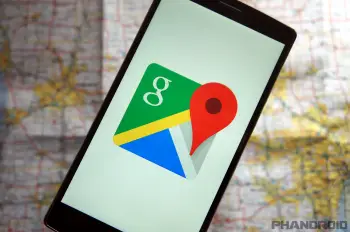
7 Best Google Maps alternatives
When it comes to mapping apps and navigational apps, Google Maps is the default for many users, especially those on Android where Google Maps already comes preinstalled. There’s a lot to like about Google Maps, such as the ability to plan your routes, check distance, Street View, check a business’s opening hours, phone number, and so on.
But is Google Maps necessarily the best mapping and navigational app for you? Maybe, but if you want something different for whatever reason, maybe you don’t want to give Google too much information about yourself and your online activities, then here are some Google Maps alternatives that you can check out.
OpenStreetMap
You can think of OpenStreetMap as the Wikipedia equivalent to Google Maps. The data used in OpenStreetMap is sourced from the public, meaning that people like you and me help provide the data to populate the map. Data is contributed via a variety of means such as through GPS devices, aerial photography, and more.
It might not necessarily come with all the fancy features that one expects from Google Maps, but it is a simple and lightweight mapping service that can be accessed anywhere as long as you have a browser, even on your smartphone.
Apple Maps
Apple Maps was Apple’s attempt at trying to create their own counter to Google Maps. While the service might have quite a rocky start with various errors and glitches, it has grown into its own. There are differences between Apple Maps and Google Maps, like how the former can show the weather on the screen at the same time if that kind of information is useful for you.
As Apple Maps uses vector graphics, it is said to consume less data compared to Google Maps, so if you’re overseas on a limited data plan, then this could be crucial. Apple Maps also has integration with Siri, so if you’re on an iOS device and like to use digital assistants, then this might be an important consideration as well.
Waze
Technically Waze is owned by Google and you would have thought that Google would have folded Waze into Google Maps. While Google Maps is slowly gaining some Waze-like features, Waze still has plenty of features that makes it unique enough to stand on its own. It’s particularly useful if you like to be informed of things like ongoing construction works on roads, police roadblocks, accidents, and so on.
Waze also prioritizes taking the fastest route possible, so if that’s something important to you then Waze could be a better navigation and mapping app compared to Google Maps.
Citymapper
People use Google Maps for different reasons. Some use it for driving, and some use it for public transportation information. If you use it mostly for the latter, then Citymapper could be a good alternative. The app is mostly aimed at those who use public transportation services like buses, trams, trains, and more.
It even shows information like ticket pricing and is constantly updated to ensure users are provided with the latest and most relevant information.
Maps.me
https://www.youtube.com/watch?v=naRmPbkC6D0
One of the features of Maps.me is similar to Google Maps where users can download maps for offline viewing. It’s almost identical to Google Maps in terms of features, like traffic info, public transportation info, cycling, and it also works great with hiking as it will display various hiking trails from all over the world, so if you’re in another country you can also use it to find hiking trails.
Bing Maps
Similar to how Apple attempted to create their own version of Google Maps, Microsoft has something similar with Bing Maps. It uses a completely different interface that some might argue is better and more modern compared to Google Maps. It also supports multiple layers and you can also save places to your personal library for reference later.
Many consider Bing Maps to be a more “true” and direct competitor to Google Maps, but the downside is that at this point in time, there is no standalone app for iOS or Android which is kind of a pity.
Here WeGo
For those who have been around technology long enough, Here might be a mapping service you might remember from the good old days. It used to be owned by Nokia back in the early 2000s before it was ultimately acquired by a consortium of carmakers which includes Audi, BMW, and Daimler.
One of the unique aspects of Here WeGo is the variety of sources it pulls its data from. For example, it can pull data from police reports, cameras, Twitter feeds, speed cameras, and so on, all of which aids in its calculations and suggestion of routes for drivers to take.